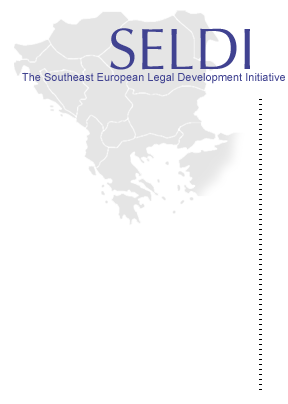
USAID Partners in Transition Conference II
The second Partners in Transition Conference sponsored by the U.S. Agency for International Development (USAID) was held in Sofia on September 10-11, 2001. H.E. Petar Stoyanov, President of the Republic of Bulgaria, served as the host of the conference.
The second Partners in Transition Conference allowed the participants to discuss both formally and informally, difficulties they have encountered along the road to building a democratic society and establishing a market-oriented economy. The theme, "Challenges of Transition," refers to some of the primary obstacles to realizing a successful transition to a democratic society and market-oriented economy.
Speakers included H.E. Petar Stoyanov, President of the Republic of Bulgaria; H.E. Stjepan Mesic, President of the Republic of Croatia; H.E. Mikheil Saakashvili, Minister of Justice of Georgia; Andrew Natsios, the Administrator of USAID; Veran Matic, Chairman of the Association of Independent Electronic Media in the Federal Republic of Yugoslavia; and Esther Dyson, CEO of EDventure Holdings, Inc. Additionally, representatives from the participating countries will lead panel discussions following each session.
Specific themes that were addressed included:
- How corruption affects people's daily lives, local government and small/medium enterprises (SMEs), and how it can be addressed at the micro level
- Moving the reform process forward by fostering cooperation among social groups and co-opting vested interests
- Identification of causes of chronic poverty, the gap between rich and poor, and how these problems can be addressed
- How modern information technology can foster an open society based on transparency and disclosure of information, and free speech
The focus of the discussion on corruption was mainly on how it affects people's daily lives, local government, and small and medium-size enterprises (SMEs)-rather than on high-level corruption (national government, big business), except insofar as the latter type of corruption affects corruption at the community level. Albania, Bulgaria, Georgia, Hungary, Belarus, Russia and Serbia presented reports on the problems of corruption in their countries and some of their best practices.
The Bulgarian report was developed and presented by a working group of representatives of government agencies, the judiciary and legislature, businesses association, media and NGOs.
Representatives from the public and private sectors of the following countries participated in the conference: Republic of Albania, Republic of Armenia, Azerbaijani Republic, Republic of Belarus, Bosnia and Herzegovina, Republic of Bulgaria, Republic of Croatia, Czech Republic, Republic of Estonia, Georgia, Republic of Hungary, Republic of Kazakhstan, Kyrgyz Republic, Republic of Latvia, Republic of Lithuania, Former Yugoslav Republic of Macedonia, Republic of Moldova, Republic of Poland, Romania, Russian Federation, Slovak Republic, Republic of Tajikistan, Turkmenistan, Ukraine, Republic of Uzbekistan, and the Federal Republic of Yugoslavia.
See conference agenda (Microsoft Word format, 32 KB)
See country working groups reports (Microsoft Word format, 89 KB)